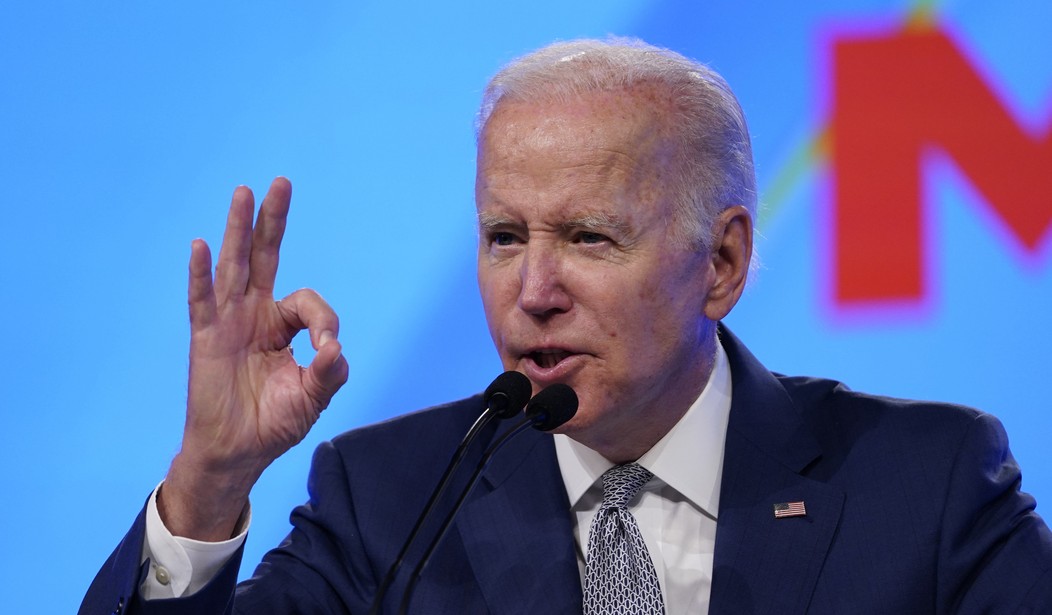Nothing much, actually, although it does speak to the future of abortion policy even in nominally conservative states. Earlier today I noted the failure of a constitutional amendment proposition in Kansas that would have overruled a state supreme court ruling and allowed the state legislature to restrict abortion access. That definitely disappointed pro-lifers, especially the wide gap on the loss, but does it portend a midterm shift after Dobbs?
You betcha, argued Dick Durbin this morning:
Dick Durbin, reacting to us on KS abortion vote: “The people are not staying home. They’re showing up at the polls. I think it’ll have an impact in November.”
“It has created a new factor in this off year election. And the Republicans are in a difficult position,” he said— Manu Raju (@mkraju) August 3, 2022
Nope, writes Washington Post analyst Philip Bump:
Certainly a large part of the reason that the proposed amendment failed was that it was largely separate from partisan politics and political candidates. There is a big difference between asking people to weigh in on an issue and asking them to weigh in on a candidate who embodies a range of issue positions. When you are voting on an amendment that would erode the availability of abortion, that’s the only consideration. When you are voting on a governor or a senator, you’re voting on their support for or opposition to abortion — and a galaxy of other things. For senators and members of the House, there’s an added layer of calculus: how well your political team is positioned in Congress.
Voters in Kansas and elsewhere will not go to the polls in November to vote for representatives who will only vote on abortion. And that will complicate how they vote.
Even among Democrats, polling conducted by YouGov last month found that abortion wasn’t the issue determined to be most important in the upcoming election. Instead, it was among the top issues. Some voters will absolutely turn out to shift elected leadership toward protection of abortion — but many will be motivated to turn out for other reasons. Are voters going to be energized to turn out to vote for a random Democratic House candidate simply to backstop abortion rights? It’s hard to say and it’s hard to measure.
For many on the left, the results in Kansas were a reminder of precisely that point: turnout matters. But electoral politics are rarely downstream from views on one single issue.
There are a couple of points to unpack here. First off, one issue does not usually drive turnout in any election cycle. Single-issue voters exist, but the vast majority of voters will calculate their choices on a ranked-issue basis, depending on the urgency of the issue. The 2018 midterms was a great example of a miscalculation in strategy in that sense. Donald Trump and Republicans had made border security a winning issue in 2016, but their attempts to run the midterms on that flopped. Why? Trump’s election and his focus on the border wall made it a lower priority. The GOP’s swing and a miss on ObamaCare repeal made health care a much higher priority, and Democrats used it to amplify their midterm rebound.
In this cycle, however, one issue will almost certainly drive turnout and voter choices, and it won’t be abortion, climate change, or even border security, which has returned to a crisis situation. It’s the economy and especially inflation and wage erosion. Again, people don’t grasp just how significant this economic environment will be, as it has been more than 40 years since we had an election under these conditions. Five straight quarters of wage erosion will make all other issues secondary to getting better economic policy, especially with Biden and his team insisting that we should stay the course.
In other words, this particular election cycle may prove an exception to Bump’s otherwise-solid point — and it’s not an exception that makes Dobbs any more impactful.
Second, it’s not clear that this was a pro-abortion result as much as it was a pro-status quo result. The amendment proposal would have made a significant change to Kansas public policy, and voters may just have decided that they’re not ready for it. Ed Whelan made that argument earlier:
To be sure, there is still a huge role for persuasion. But that might well be a long-term process. Pro-lifers need to pursue principled incrementalism.
— Ed Whelan (@EdWhelanEPPC) August 3, 2022
All sides need to learn the new lay of the land in the post-Roe era and think more incrementally. Liberals responded with bills that would have legalized abortion to the moment of birth and the elimination of conscience protections, while conservatives responded with outright bans and constitutionally absurd interstate-travel prohibitions. Neither of those positions remotely represent the vast majority of the American electorate on abortion.
It’s not surprising that Kansas voters want to take a deep breath and spend some time absorbing the Dobbs impact before making large-scale changes to public policy. Both sides of the issue might be well advised to take a hint and work on discovering what people want first before attempting to make those wholesale changes.
In the meantime, though, this doesn’t signal a midterm shift. And to the extent that abortion is even in the mix at this moment, two more reports on inflation and another quarter of wage erosion will keep voters focused on the real crisis in their everyday lives.








Join the conversation as a VIP Member